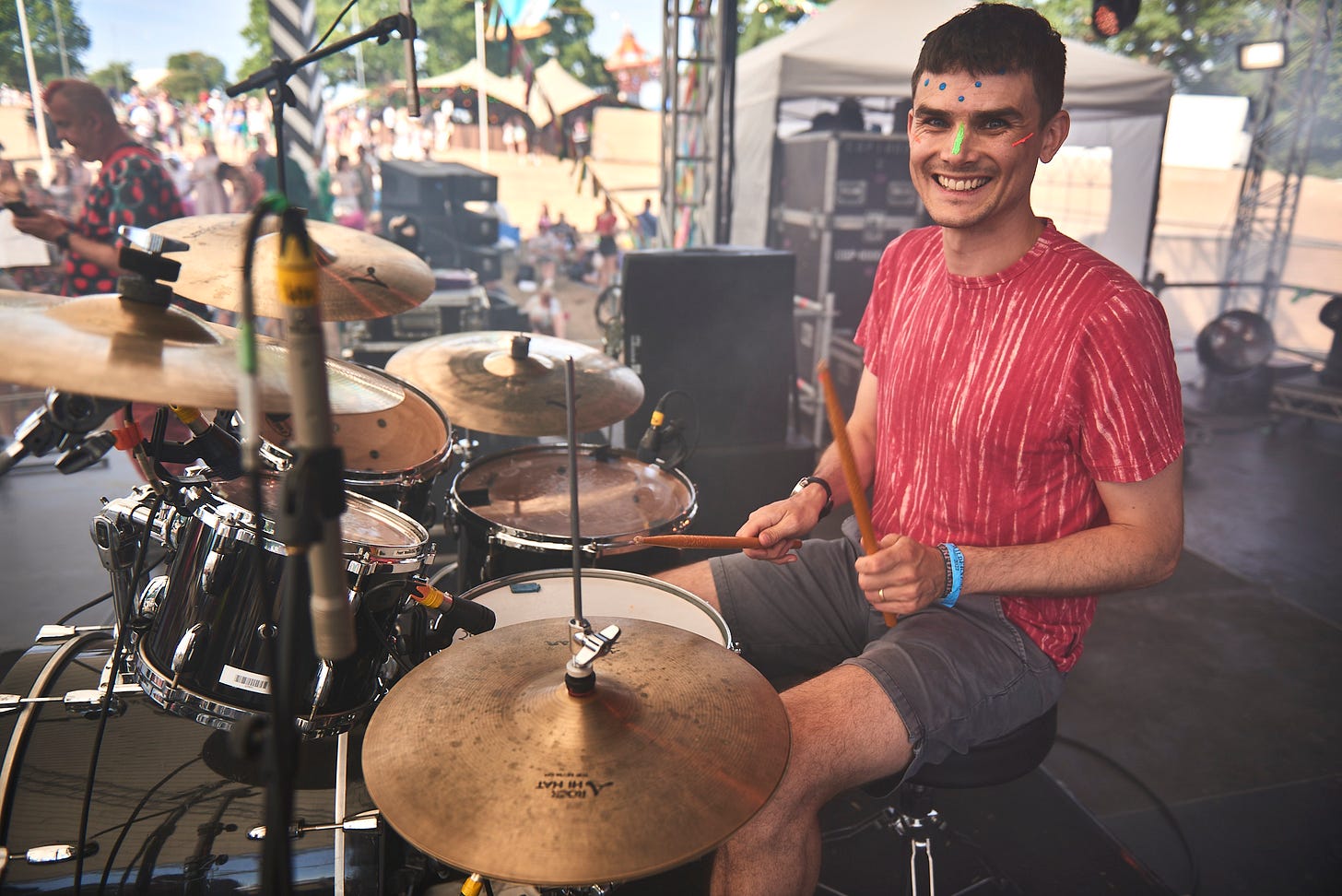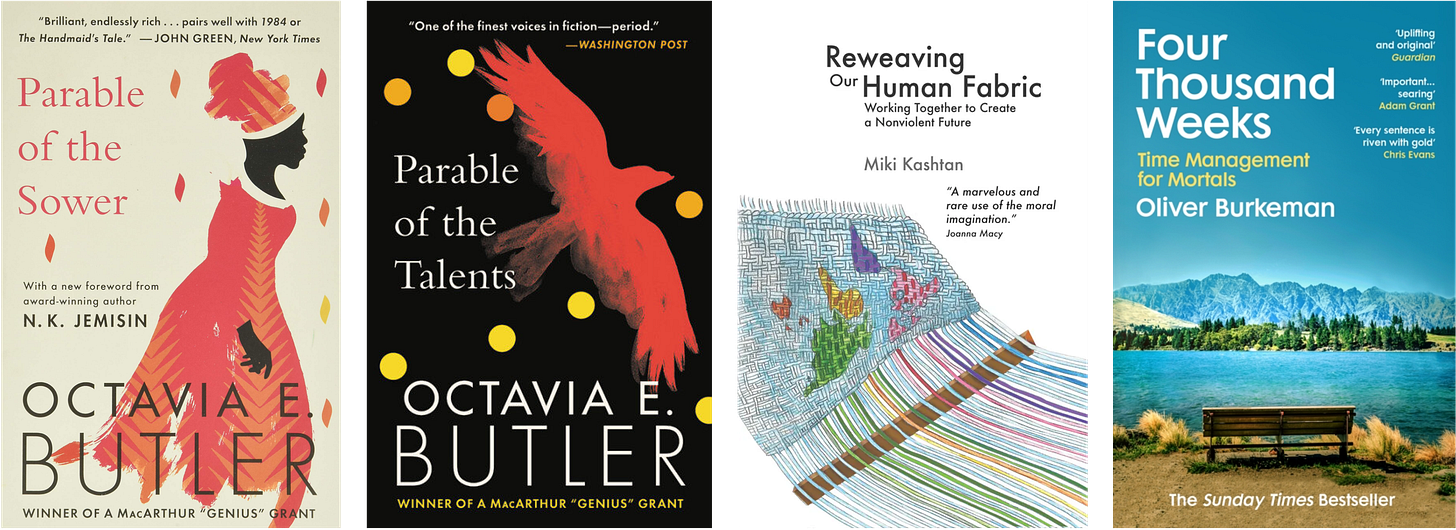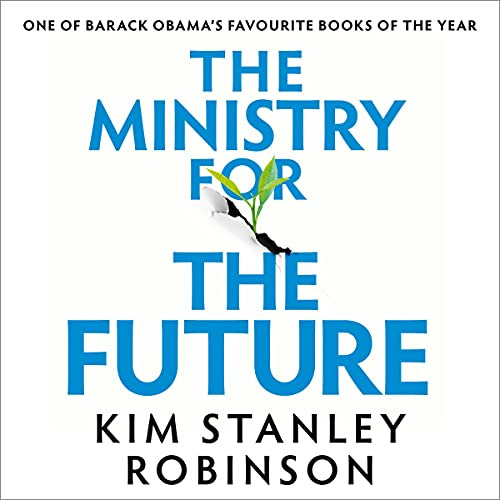Hello again!
I’m back with my tail between my legs, getting this edition out before the inevitable deluge of early September newsletters. However, I’m happy to report that this missive has been absent for a while largely because I’ve been doing things I care about, including having some fun!
Highlights include celebrating my Mum’s 60th birthday in June, a holiday in Italy followed by watching England’s Euros win vs Spain in Brighton in July and drumming at Wilderness Festival with the Sunday Assembly band in early August.

I was also busy recruiting trustees and a CEO at RESULTS UK, working with various clients and getting into a new role as part of the stewarding group for an inquiry into Transformational Governance (more on this soon as we update our website).
Since getting back from Wilderness, I’ve enjoyed some quieter weeks getting around to things I’ve been meaning to do for months or even years. I’ve finished a book that I’ve been halfway through for 2.5 years, written up notes from a training course from January 2021 and finally completed a course on Roam (‘a note-taking tool for networked thought’ - like creating a personal wiki) and started actively using it. This last piece promises to supercharge my learning and synthesis, which really excites me.
It has also been business development season for all sorts of things kicking off in Autumn. I hope that by the next newsletter I’ll have some new projects underway that are strongly in line with the work I want to do (somewhere in the overlaps between facilitation, coaching, systems change, learning, redistributing power, strategy, creating alternative futures, convening, governance…)
What I’ve been reading
Lots of books! It has been glorious. I won’t list them all but here are three highlights:
1. Octavia E. Butler: The Parable of the Sower and The Parable of the Talents
A dystopian future written in the 1990s and set in the 2020s and 2030s: Butler weaves themes of violence, slavery, faith, community and climate breakdown into a story that is at once prescient, heart-breaking and inspiring.
2. Miki Kashtan: Reweaving Our Human Fabric
What happens if you extend non-violent communication into a worldview and imagine the futures that would embody this? This collection of essays and ‘wisdom tales from the future’ is going to take me a while to untangle. Each of the lines below could ignite a blog post by themselves…
The primary principle around which collaborative societies can be built is the principle of meeting the most needs for the most number of people possible and for the natural environment. Although this principle may appear as having little consequence, the attempt to apply it changes everything in all the spheres that constitute a human society.
Can we transform power dynamics so that the statement that “power corrupts” no longer appears so completely like a truism?
A movement cannot continue indefinitely when all that unites people is what they are against.
3. Four Thousand Weeks: Time Management for Mortals by Oliver Burkeman. Assuming a lifespan of around 80 years, we each have four thousand weeks, give or take, on this earth. We try to avoid thinking about this fundamental constraint and live like we’ll get around to everything we might want to do. However, living like that often means putting off the things that really matter in the life and always preparing for the future. As a productivity and self-development nerd, the following lines really struck me:
Productivity is a trap. Becoming more efficient just makes you more rushed, and trying to clear the decks simply makes them fill up again faster.
It’s easy to spend years treating your life as a dress rehearsal on the rationale that what you’re doing, for the time being, is acquiring the skills and experience that will permit you to assume authoritative control of things later on. But I sometimes think of my journey through adulthood to date as one of incrementally discovering the truth that there is no institution, no walk of life, in which everyone isn’t just winging it, all the time.
Climate Emergency
The latest book I’ve just started is The Ministry for the Future by Kim Stanley Robinson. It’s based on fictional eyewitness accounts of climate breakdown along with snippets of climate science, building into a hopeful story about how the world might respond to catastrophe.
I have been thinking about reading this for a while and it was the heatwave in the UK along with the most severe heatwave ever recorded happening right now in China that told me now was the time. Given that the first chapter is an account of a deadly heatwave in India, the book feels very real and I’m gripped. [Update: Two days later and I’ve been devouring this to be 70% of the way through the 576 pages.]
This piece from Alex Steffen - Old thinking will break your brain - feels far too true.
This planetary crisis, climate change and all, is not an issue, or a set of issues, but an era. The rules have been rewritten. We don't take the planetary crisis seriously enough when we fail to understand how quickly natural and human systems are now being transformed— and how quickly the rate of change is going accelerate in the near future. That rate of change is blowing one discontinuity after another our way, like whitecapped waves on a rough sea under a dark sky, and the big storm has not yet reached our horizon.
However…
The success of those individuals who are committed to fast action and bold response to the crisis is, it cannot be emphasized enough, vital. But to win a better future, we need efforts to amplify each other in unexpected ways, to help new networks and constituencies to grow. Mutual acceleration and scale is the best way to do some large-scale good in a world full of sociopath oligarchs, sleepwalking publics, corrupt governments and irrational markets.
(Yes - I’ve gone from smiley drummer to doom-merchant in a few paragraphs.)
Power and Patriarchy

A big theme of learning for me at the moment is power, patriarchy and supremacy. It’ll be a while for me to have something original to say on this. So, for now I want to highlight some things that have recently stopped me in my tracks as I’ve read or listened to them - the kind of thing where I’m highlighting the hell out of it or repeatedly rewinding a podcast.
Introduction to Power (Cyndi Suarez)
I had never come across this particular description of types of power…
There are two types of power—supremacist power and liberatory power. Supremacist power is the ability to dominate, or control, people and things. It is a crude form of power, related to scarcity consciousness, or the belief that the world holds limited supplies of the things we want—such as love, power, and recognition. Liberatory power is the ability to create what we want. It is real power, related to abundance consciousness, the creative force of life. Liberatory power is about expanding our set of choices and fine-tuning our consciousness so that we can recognize decision points and choose intentionally.
The rest of the article is well worth a read and I’m looking forward to reading her book: “The Power Manual: How to Master Complex Power Dynamics.”
Relinquishing the Patriarchy (adrienne maree brown)
I highlighted so much of this article.
you MUST… be willing to understand that patriarchy is a million small choices everyday to shirk responsibility, to assume power you haven’t earned, to be mothered by your partners… you MUST learn to see those choices and add more options into your life.
And here’s a trap I’m pretty sure I fall into (am I doing so right now in a meta way?!)…
don’t get into language supremacy, or read-the-most-feminists supremacy. don’t think that you are better than other men because you know the language of patriarchy, feminism and other isms. it’s the overcharged competitive nature, the desire to be better than, the inappropriate topping itself that is toxic.
What if ending male violence was men’s work? (Podcast, From What If to What Next)
I appreciated this episode featuring Ben Hurst of Beyond Equality and Graham Goulden of Cultivating Minds UK about the role of men in interrupting male violence and expectations of masculinity. I wonder if this is about interrupting supremacist power with liberatory power, to use the terms from Cyndi Suarez above - while not falling into being a saviour and apologising when we make mistakes. They also talk about how part of men’s role is in creating spaces where men can be authentic, connect with each other and build emotional literacy.
See also: Ben Hurst’s TEDx talk: Boy’s won’t be boys. Boys will be what we teach them to be.
I’ve been meeting with the same group of men for 36 years – here’s what they’ve taught me (David Spiegelhalter)
I joined my first Men’s Circle at Wilderness Festival and plan to find a regular one this Autumn. This article is a celebration of 36 years of the same group (more or less) meeting together. As pointed out by adrienne maree brown, part of relinquishing patriarchy comes from men being better at talking to each other about feelings and building ‘friendships of radical honesty’. The author’s Desert Island Discs episode is also a beautiful listen - particular the poignant section on the death of his son.
***
Finally, here’s the full recording of Sunday Assembly at Wilderness featuring some Arctic Monkeys, a 2010s dance medley, The Killers, Whitney Houston and 19th century Welsh Methodist sacred jumping.
In case you’re around London, I’ll next be playing at Sunday Assembly on September 18th (11am at Conway Hall, nr. Holborn Station). It also happens to be my birthday!





